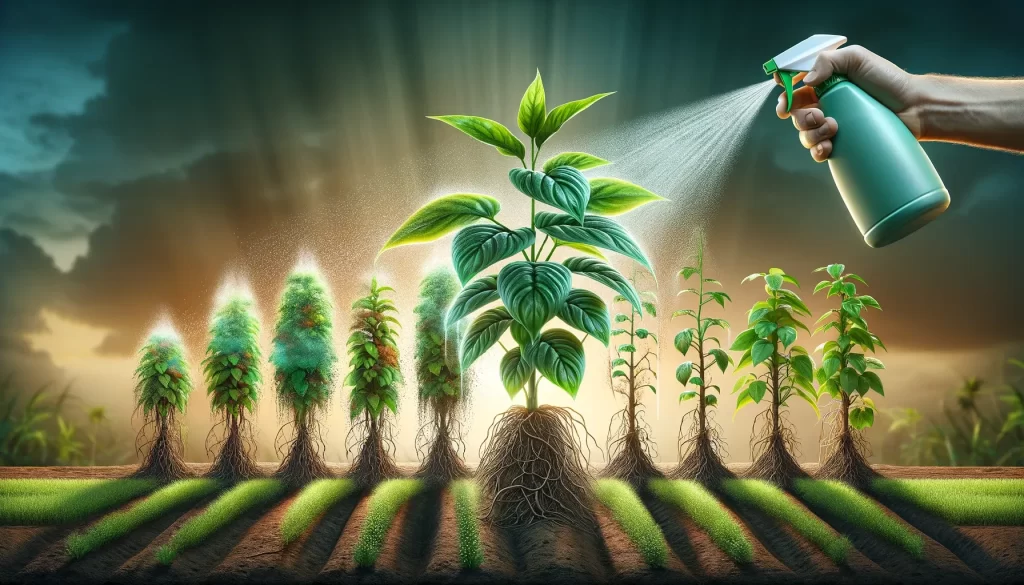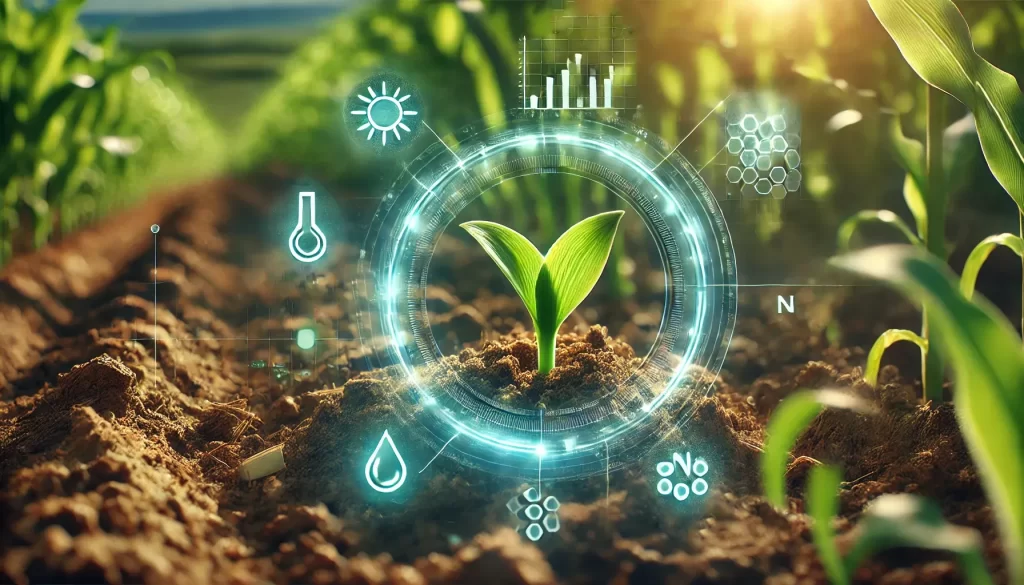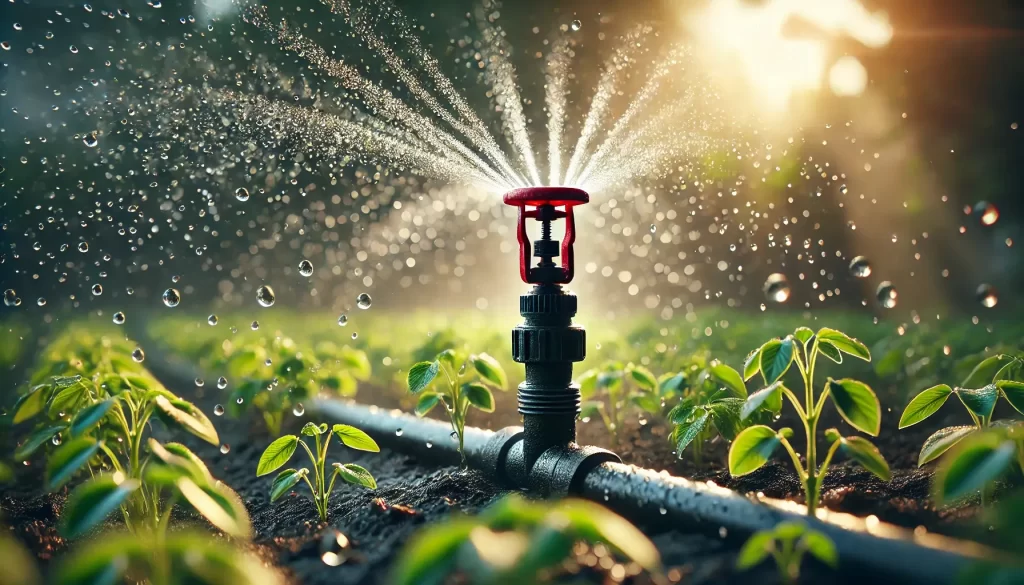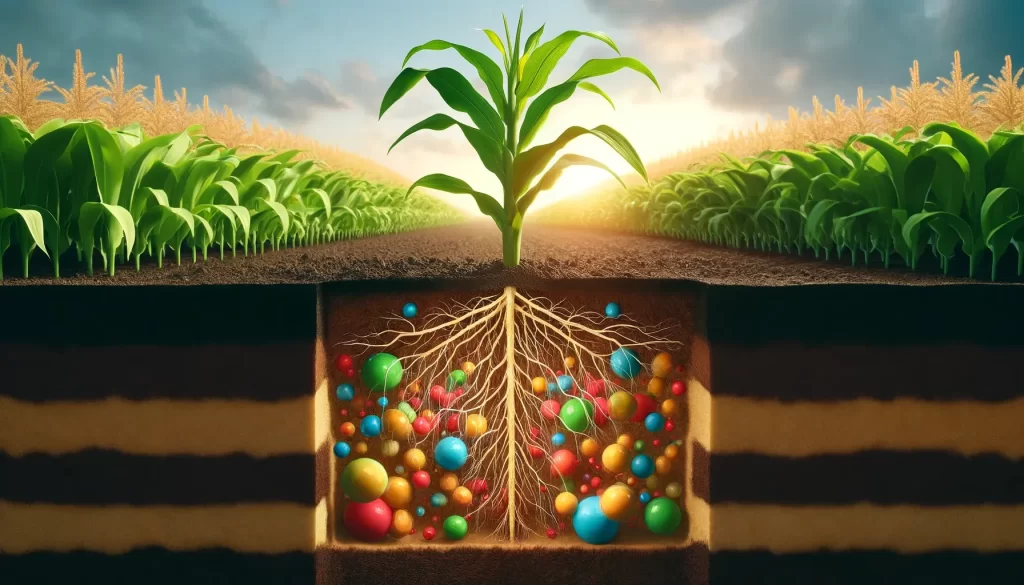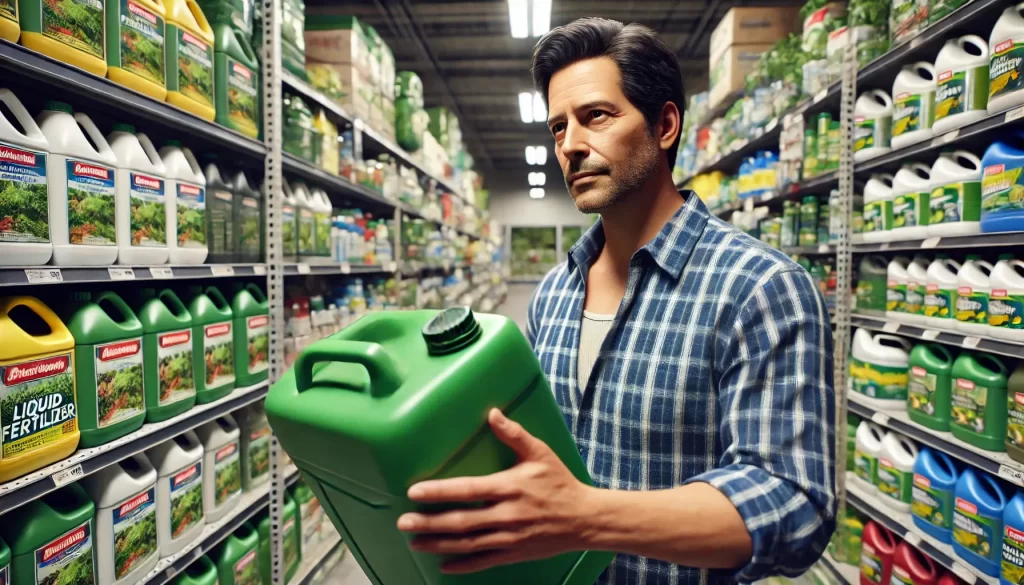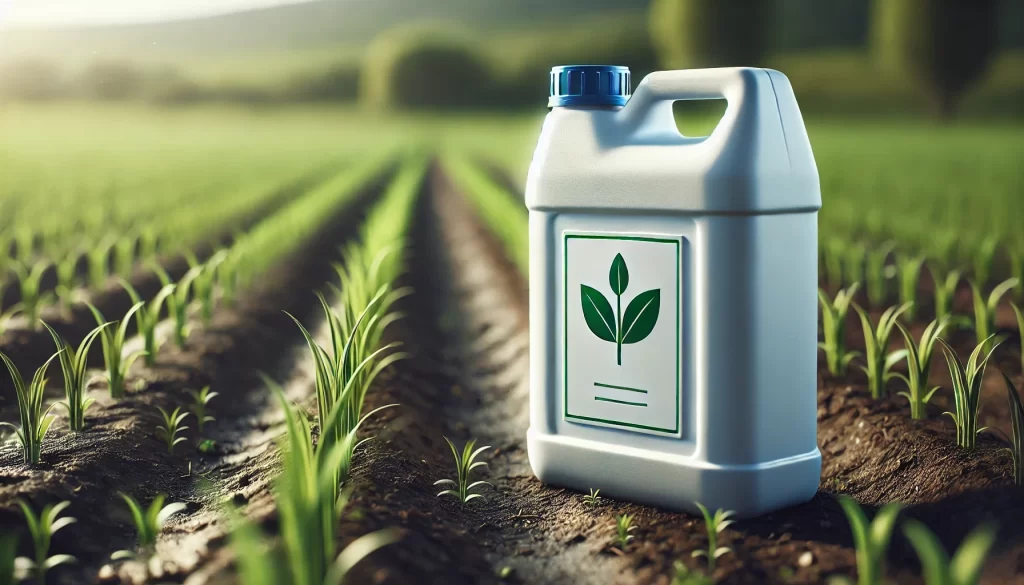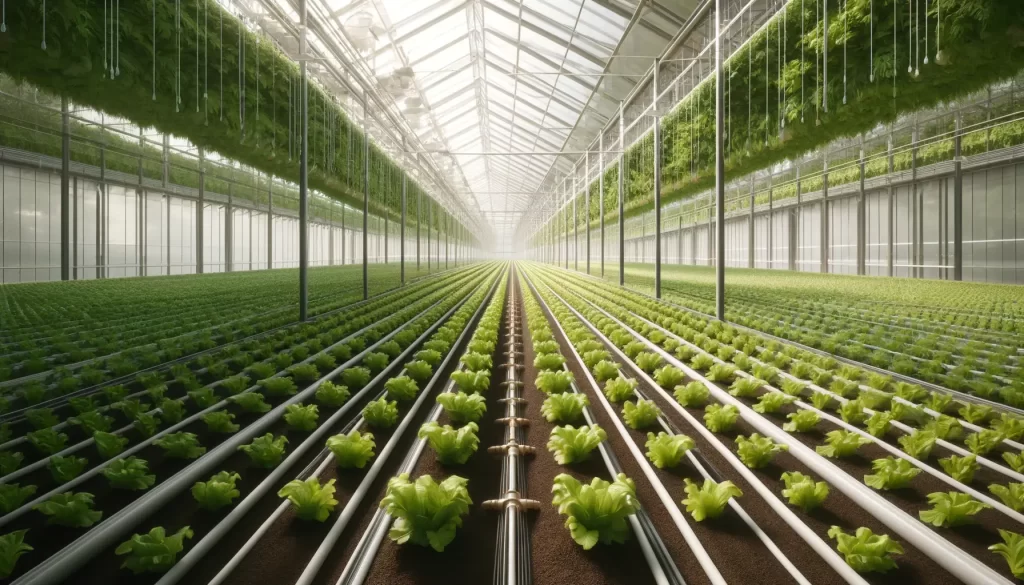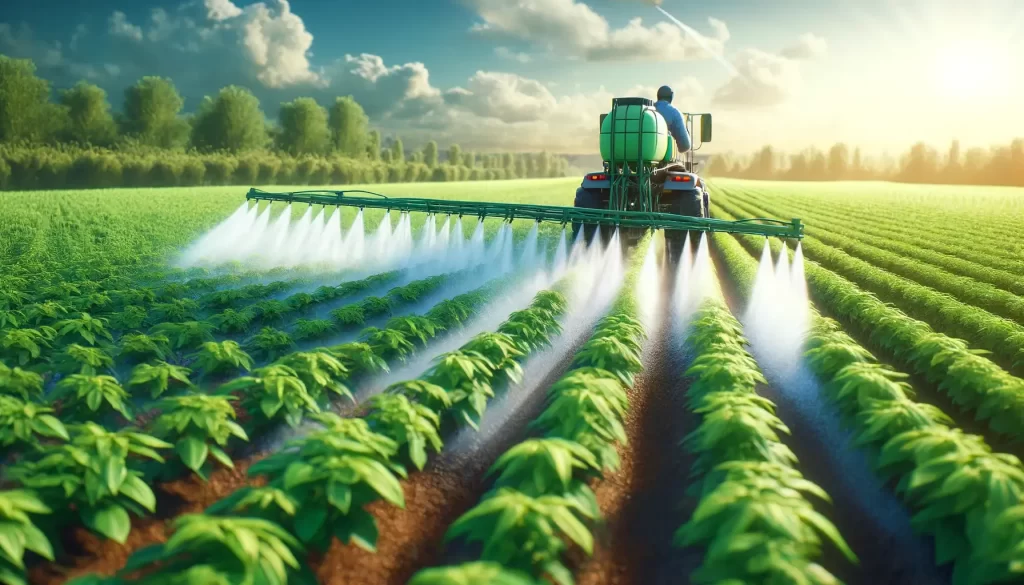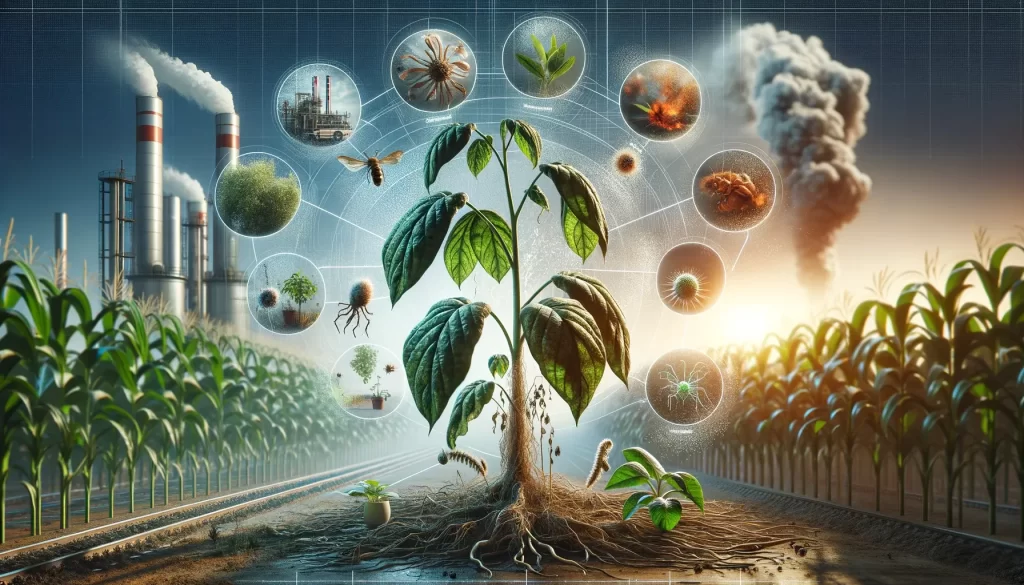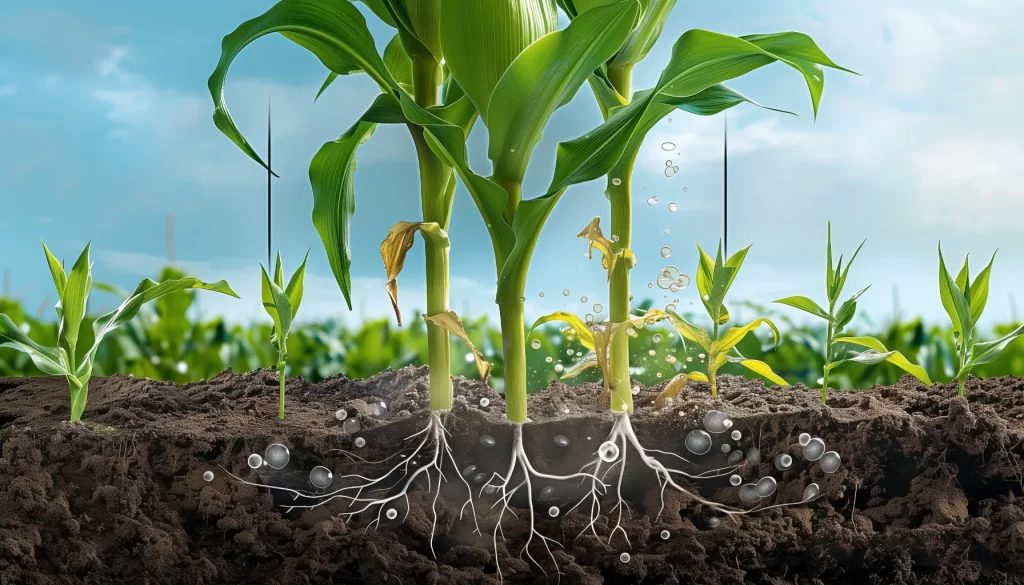It is vital that plants are healthy to increase efficiency and sustainability in agricultural production. Plant diseases are one of the biggest threats causing significant production loss and economic damage worldwide. Various methods are used to combat these diseases. Chemical drugs have been widely used for many years, but raise many concerns due to their negative effects on the environment and human health. Therefore, it is becoming increasingly important to develop sustainable and environmentally friendly alternatives.
Liquid fertilizers are a type of fertilizer that offers a new approach to plant nutrition and has gained popularity in recent years. Since the nutritional elements are soluble in water, they are quickly and easily absorbed by plants. In this way, the nutritional needs of the plants are met more effectively and their general health condition improves. It is known that liquid fertilizers also play an important role against plant diseases.
Effect of Liquid Fertilizers on Diseases
Liquid fertilizers can protect against plant diseases in many ways:
Nutritional Supplement and Strengthening Plant Immunity
Adequate and balanced nutritional intake increases the resistance of plants to diseases. Liquid fertilizers have a rich content in macro and micro nutrients. Thanks to these nutrients, the immune systems of plants are strengthened and they become more resistant to diseases.
Increasing Resistance to Disease Agents
Liquid fertilizers strengthen the cell walls of plants, making it difficult for disease agents to enter. It also helps plants become more resistant to diseases by increasing their stress tolerance.
Reducing Disease Symptoms
Some diseases can cause nutrient deficiency symptoms in plants. It is known that the use of liquid fertilizers reduces these symptoms and makes the diseases appear later.
Use of Liquid Fertilizer in Different Diseases
Liquid fertilizers can be used against many different types of diseases, such as fungal diseases, bacterial diseases and viral diseases. There are specific nutritional elements and application methods for each disease type.
Fungal Diseases
Fungal diseases are one of the most common types of diseases in agricultural production. Liquid fertilizers contain nutrients such as potassium and calcium against fungal diseases, as well as micronutrients such as boron and zinc. These nutrients strengthen the cell walls of plants, making it difficult for fungi to enter. It also helps plants become more resistant to diseases by increasing their stress tolerance.
Bacterial Diseases
Bacterial diseases are common in humid and warm environments. Liquid fertilizers contain nutrients such as potassium and calcium against bacterial diseases, as well as micronutrients such as copper and manganese. These nutrients strengthen the cell walls of plants, making it difficult for bacteria to enter. It also strengthens the immune systems of plants and helps them become more resistant to diseases.
Virus Diseases
Viral diseases are one of the most difficult to control types of diseases. Liquid fertilizers do not provide direct protection against viral diseases, but they help plants become more resistant to diseases by improving their general health condition.
Application Methods and Things to Consider
Liquid fertilizers can be used by different methods such as foliation, drip irrigation and soil application. Each application method has different advantages and disadvantages. The method to be used should be selected according to the plant species, disease type and soil type.
a) Foliation:
Foliation application allows liquid fertilizers to be quickly absorbed by the plant. This method is especially preferred when plants show signs of nutrient deficiency or in the early stages of diseases. However, care should be taken as frequent repetition of foliation application may cause burning effects on plants.
b) Drip Irrigation:
Liquid fertilizers used with drip irrigation systems are delivered directly and in a controlled manner to the root zone of plants. This method saves water and ensures that plants receive exactly the nutrients they need. However, installation and maintenance costs of drip irrigation systems are higher.
c) Soil Application:
Soil application is the easiest and most commonly used liquid fertilizer application method. In this method, liquid fertilizers are mixed with water and poured directly into the soil or given with irrigation water. However, in soil application, the plant’s nutrient uptake rate is slower than in foliation application.
Things to Consider
- Choosing the Right Product: Liquid fertilizers specially formulated for different plant species and disease types should be preferred. For example, liquid fertilizers with high potassium and calcium content are preferred against fungal diseases seen in tomato plants, while liquid fertilizers containing copper and manganese are more effective against bacterial diseases seen in apple trees.
- Dosage Calculation: The doses specified on the packages of liquid fertilizers must be followed. Overdose application may cause burning effects on plants and environmental pollution.
- Appropriate Timing: Liquid fertilizer applications are generally made according to the growth and development periods of the plants. Additionally, the use of liquid fertilizer may be beneficial during periods when diseases occur or in preventive disease control programs.
- Safety and Environmental Effects: It is important that liquid fertilizers are used safely and do not cause environmental pollution. Before use, product labels should be read carefully and the instructions should be followed. Additionally, empty packaging must be disposed of in a way that does not harm the environment.
Liquid fertilizers play an important role in plant nutrition as well as in the fight against plant diseases. Thanks to its balanced nutritional content, it strengthens the immune systems of plants and increases resistance to diseases. In addition, it reduces the symptoms of nutrient deficiency caused by some diseases in plants, allowing diseases to appear later.
With GreenliveLiquid Fertilizers, you can make your plants healthy and more resistant to diseases. Greenlive liquid fertilizers, with a wide range of products, are specially formulated according to the needs of different plant species and soil properties. Thanks to its rich content, it meets all the macro and micro nutrients that plants need and supports the healthy growth of plants.
Our Greenlive Technical Service teams provide you with expert support on correct product selection, dose calculation and application methods. Choose Greenlive Liquid Fertilizers for efficient and profitable agriculture!
Frequently Asked Questions (FAQ)
1. What are Liquid Fertilizers?
Liquid fertilizers are types of fertilizers that contain nutrients in water-soluble form. They have become increasingly preferred in agriculture in recent years, thanks to their ability to be absorbed quickly and easily by plants. They can be used with different methods such as foliation, drip irrigation and soil application.
2. What is the Effect of Liquid Fertilizers on Plant Diseases?
Liquid fertilizers can protect against plant diseases in many ways:
- Nutritional Supplement and Strengthening Plant Immunity: Adequate and balanced nutritional intake increases the resistance of plants to diseases. Liquid fertilizers have a rich content in macro and micro nutrients. Thanks to these nutrients, the immune systems of plants are strengthened and they become more resistant to diseases.
- Increasing Resistance to Disease Agents: Liquid fertilizers strengthen the cell walls of plants, making it difficult for disease agents to enter. It also helps plants become more resistant to diseases by increasing their stress tolerance.
- Reducing Disease Symptoms: Some diseases can cause nutrient deficiency symptoms in plants. It is known that the use of liquid fertilizers reduces these symptoms and makes diseases appear later.
3. On Which Plants Can Liquid Fertilizer Be Used?
Liquid fertilizers can be used on many different types of plants, including vegetables, fruits, grains, legumes and ornamental plants. Appropriate liquid fertilizer should be selected by considering the specific nutritional needs and disease risks of each plant species.
4. How to Apply Liquid Fertilizers?
Liquid fertilizers can be used by different methods such as foliation, drip irrigation and soil application. Each application method has its own advantages and disadvantages.
- Foliation: Foliation application allows liquid fertilizers to be quickly absorbed by the plant. This method is especially preferred when plants show signs of nutrient deficiency or in the early stages of diseases.
- Drip Irrigation: Liquid fertilizers used with drip irrigation systems are administered directly and in a controlled manner to the root zone of plants. This method saves water and ensures that plants receive exactly the nutrients they need.
- Soil Application: Soil application is the easiest and most commonly used liquid fertilizer application method. In this method, liquid fertilizers are mixed with water and poured directly into the soil or given with irrigation water.
5. What Should Be Considered When Using Liquid Fertilizer?
- Choosing the Right Product: Liquid fertilizers specially formulated for different plant species and disease types should be preferred. For example, liquid fertilizers with high potassium and calcium content are preferred against fungal diseases seen in tomato plants, while liquid fertilizers containing copper and manganese are more effective against bacterial diseases seen in apple trees.
- Dosage Calculation: The doses specified on the packages of liquid fertilizers must be followed. Overdose application may cause burning effects on plants and environmental pollution.
- Appropriate Timing: Liquid fertilizer applications are generally made according to the growth and development periods of the plants. Additionally, the use of liquid fertilizer may be beneficial during periods when diseases occur or in preventive disease control programs.
- Safety and Environmental Effects: It is important that liquid fertilizers are used safely and do not cause environmental pollution. Before use, product labels should be read carefully and the instructions should be followed. Additionally, empty packaging must be disposed of in a way that does not harm the environment.
6. Which Liquid Fertilizers Should Be Preferred for Different Diseases?
Liquid fertilizers can be used against many different types of diseases, such as fungal diseases, bacterial diseases and viral diseases. However, there are specific nutritional elements and application methods for each disease type.
- Fungal Diseases: Fungal diseases are one of the most common types of diseases in agricultural production. Liquid fertilizers contain nutrients such as potassium and calcium against fungal diseases, as well as micronutrients such as boron and zinc. These nutrients strengthen the cell walls of plants, making it difficult for fungi to enter. It also helps plants become more resistant to diseases by increasing their stress tolerance.
- Bacterial Diseases: Bacterial diseases are generally common in humid and hot environments. Liquid fertilizers contain nutrients such as potassium and calcium against bacterial diseases, as well as micronutrients such as copper and manganese. These nutrients strengthen the cell walls of plants, making it difficult for bacteria to enter. It also helps plants become more resistant to diseases by strengthening their immune systems.
- Virus Diseases: Viral diseases are one of the most difficult to control types of diseases. Liquid fertilizers do not provide direct protection against viral diseases, but they help plants become more resistant to diseases by improving their general health condition.
7. Are Liquid Fertilizers Alternative to Chemical Medicines?
Liquid fertilizers cannot completely replace chemical pesticides against plant diseases. However, they can be used to reduce chemical pesticide use and as an important part of integrated control programmes.
- Chemical drugs are generally used after diseases occur. Therefore, they may have difficulty preventing the spread of diseases.
- Repeated use of chemical drugs may lead to the development of resistance in plants. In this case, medications may become ineffective over time.
- Misuse of chemical drugs can cause environmental pollution and harm to human health.
Liquid fertilizers improve the general health of plants and increase resistance to diseases. In this way, it reduces the need to use chemical drugs. Additionally, when used correctly, it causes minimal environmental pollution and harm to human health.
8. What are the advantages of liquid fertilizers over granular fertilizers?
Liquid fertilizers have many advantages over granular fertilizers:
- Quick and Easy Absorption: While granular fertilizers take time to dissolve in the soil, liquid fertilizers are absorbed quickly and easily by plants. In this way, the nutritional needs of the plants are met in a short time and the positive effects begin to be seen immediately.
- Homogeneous Distribution: While granular fertilizers may be difficult to distribute homogeneously in the soil, liquid fertilizers have a homogeneous mixture. In this way, they are distributed evenly to different parts of the soil during application. Thus, each part of the plants can easily access the nutrients it needs.
- Soil Microbial Activity: Some liquid fertilizers contain organic substances that increase soil microbial activity. In this way, the solubility of mineral elements in the soil increases and nutrient uptake by plants becomes easier. Additionally, the proliferation of beneficial microorganisms in the soil improves the soil structure and supports plant growth.
9. Are Greenlive Liquid Fertilizers Different from Other Brands?
As Greenlive, we highlight our liquid fertilizers with the following features:
- Wide Product Range: We offer a wide range of liquid fertilizer products specially formulated to meet the needs of different plant species and soil properties. In this way, you can choose the most suitable liquid fertilizer for each plant type.
- Rich Content: Our liquid fertilizers have a rich content in terms of macro and micro nutrients. It helps plants grow in a healthy way by meeting all their nutritional needs.
- Quality Raw Materials: We use the highest quality raw materials in production. In this way, we offer liquid fertilizers that contribute positively to the development of plants and do not harm the environment.
- Technical Service Support: Our Greenlive Technical Service teams provide you with expert support on correct product selection, dose calculation and application methods. We help you find the best solution your plants need.
10. How can I access Greenlive Liquid Fertilizers?
You can contact us to get more detailed information about Greenlive Liquid Fertilizers and to access our products. Our competent staff will help to offer you the most suitable liquid fertilizer solutions.



